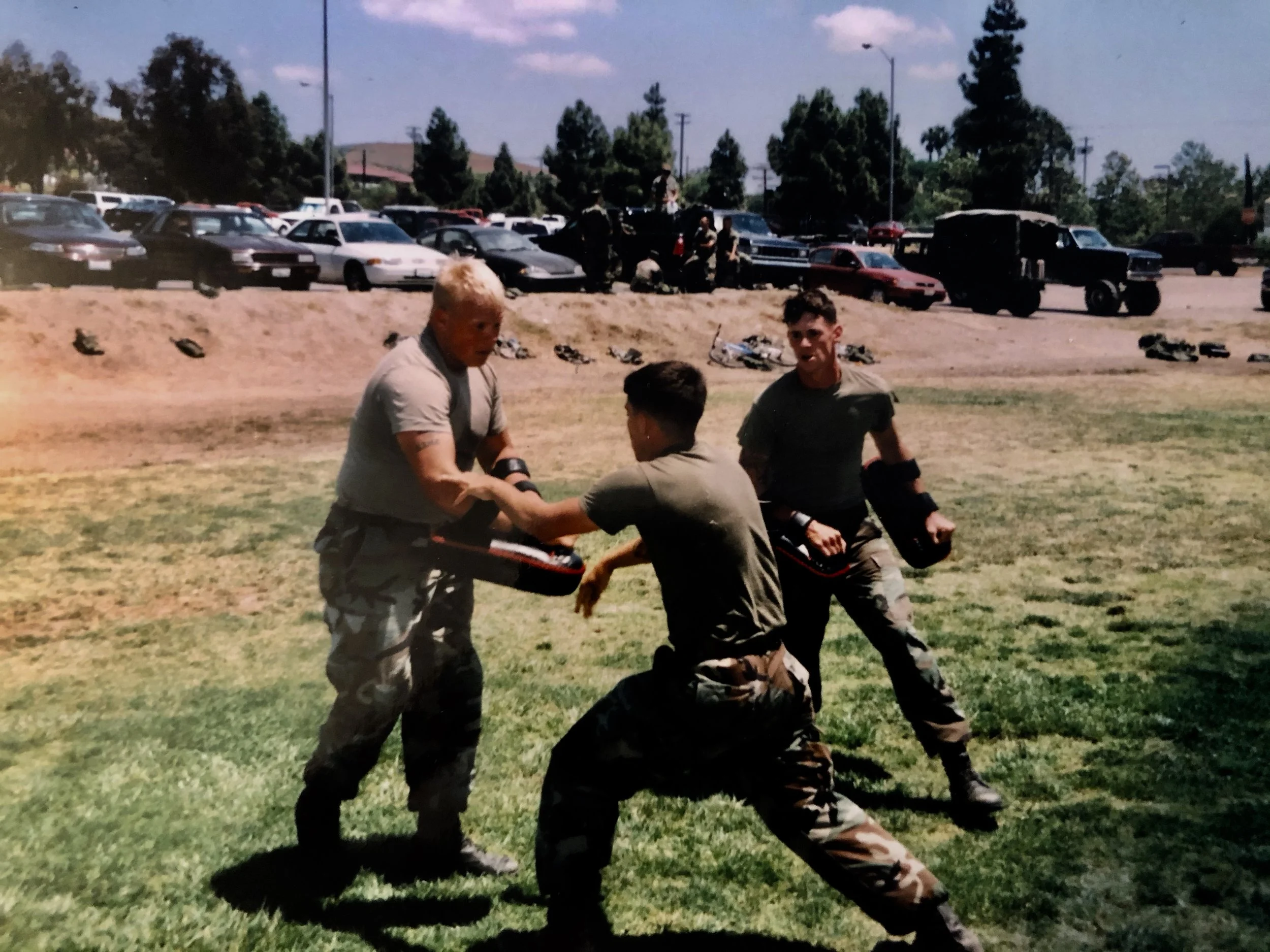An Aiki Thing To Do
I first met Birks when he was recently promoted to First Lieutenant, just over a year out of The Basic School. He was the officer that supported our efforts running the Marine Corp Martial Art Program (MCMAP) at Camp Pendleton, California in 2000. In his support position he was close to the project yet wasn’t a direct participant, but he was intensely interested and hounded me daily about what we we’re doing. “Show me the techniques you taught today; how would you use it in combat; have you ever had to use it; explain the importance of irimi” he would ask. I would take some time at the end of the day answering his questions and going over various techniques with him. He was authentically fascinated by what we were doing, and at the same time his inquiries were always guided by the pragmatic view of, “would it work?”.
He was a champion Division 1 Collegiate wrestler in college and had tried a number of martial arts. He was tough, disciplined, and carried a big heart in his barrel chest. I would show him what we were doing and he would hang around as much as his time allowed. He was equally interested in the philosophy of Aikido and the methodology we used teaching the teachers as much as the techniques. He was a solid Marine who cared about his men and he thought what we were doing would help his Marines, and make him a better leader. At some point I gave him the names of some Aikido dojos in the area and he began training.
Over time I would get emails from then Captain Birks who said he was continuing his Aikido training whenever he could. Then I heard a story about a Marine officer near Falluja, Iraq who had his patrol drop to one knee, take their helmets off, and bow their heads as an Iraqi funeral procession passed by. This diffused a potentially dangerous moment as the funeral crowd was outraged seeing an American military unit patrolling their neighborhood, and they made threatening gestures in response. Later the Iraqis spoke the officer’s virtues in how he respected their culture and community. Coincidence or not, Captain Birks’ unit suffered minimal casualties and attacks in their area of operation after this incident. Later when I asked Birks if this was him and why he did it he said, “Yes it was me and it seemed like the Aiki thing to do.”
When I asked him what he meant he was silent for a while and then replied, “Actually in the moment I wasn’t thinking anything really. We had been in some tough fights where I had lost some men and I was very vigilant. All of us were. Then I saw that these Iraqis were also on guard and wary of us, actually devastated by what was happening and they were grieving loss just like I was and for no reason I can explain I told the men to take a knee and remove their helmets. I knew what it was like to lose someone and…” Here he became quiet again gathering himself and then after a bit said, “I think what happened was that I remembered blending, about seeing where they were coming from, seeing where the energy was going and going with it. You know Aikido. It was the Aiki thing to do.”
Take It Easy But Take It,
Richard Strozzi-Heckler

